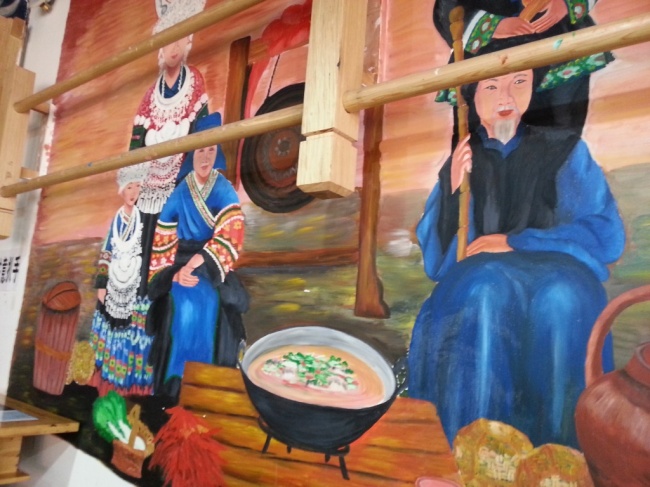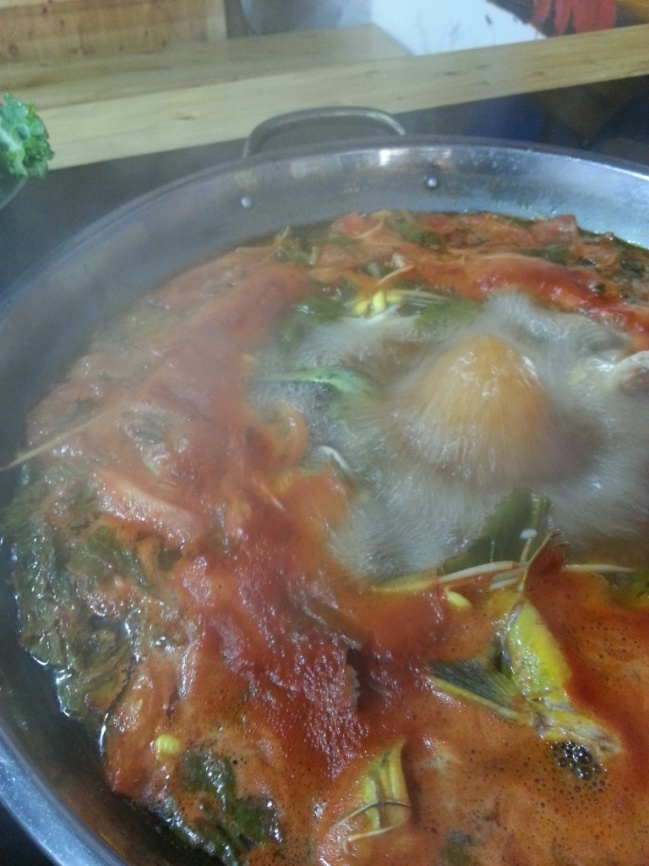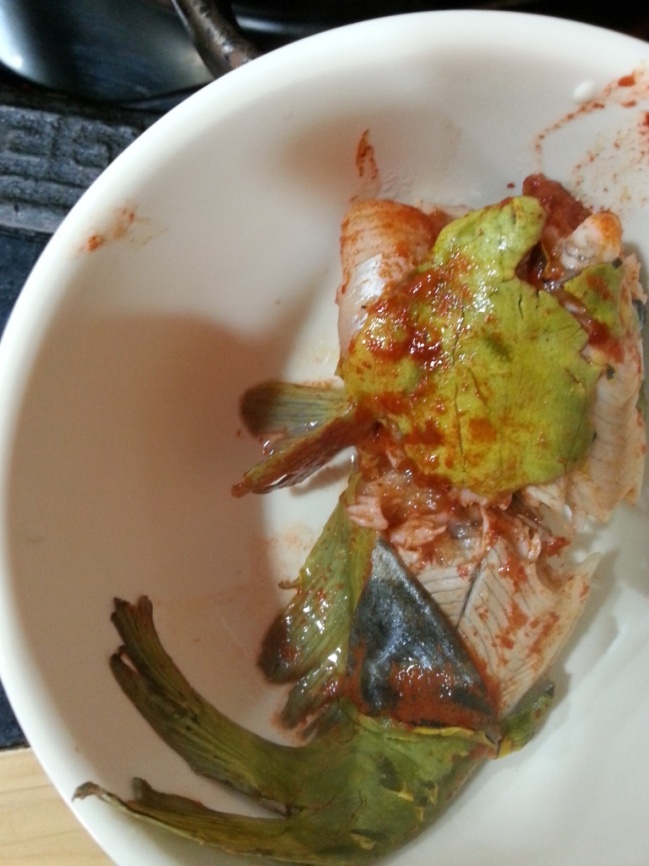
One of the things attracting me to Guizhou this holiday season was the food. The province is generally recognized as part of China’s spice belt, though its fiery offerings are not as famous as the neighboring Sichuan and Hunan cuisines. All throughout my journey from the bland shores of Shanghai, I was salivating at the thought of trying something new.
My first stop in Guiyang was a place called the Kaili Sour Fish Restaurant, which served a hotpot-esque dish made famous in the nearby city of Kaili. Kaili Sour Fish Restaurant is a top recommendation both in Lonely Planet and in China’s Yelp-esque Dianping app, so I made a beeline for it. Once inside, a server helped me fish half a pound of live six-inch fish from a tank and took them to the kitchen to start cooking. I sat down at one of the wooden tables in the middle of the empty dining room, thinking it a little strange that such a popular restaurant was so empty at lunchtime. Maybe the diners had yet to return from their holiday hibernation? While waiting, I enjoyed a wall mural of an ethnic minority family enjoying a pot of sour fish:
Soon a waiter placed a broth-and-fish-filled metal pot in a heated recess in the table, leaving me to watch while the fish continued to boil mixed with sprouts, greens, onions, and spicy red oil.
I picked the fish out one by one with chopsticks and picked the meat off the bones from a small white bowl. Forty minutes later I had a neat pile of fish bones ready to feed to the neighborhood cat. Overall it was more spicy than sour, which suited me just fine.
It was only after leaving the restaurant that I realized I had committed a fundamental mistake in eating at famous restaurants in China: as I approached the restaurant’s address, I had walked into the first place I saw with a Kaili Sour Fish Restaurant sign. In fact, that was just the first of many copycat restaurants that had gone up on either side of the real McCoy, a much larger and more finely decorated institution half a block down the road. It was packed with a line out the door. Oh well. Even the fake Kaili Sour Fish was still pretty good.




